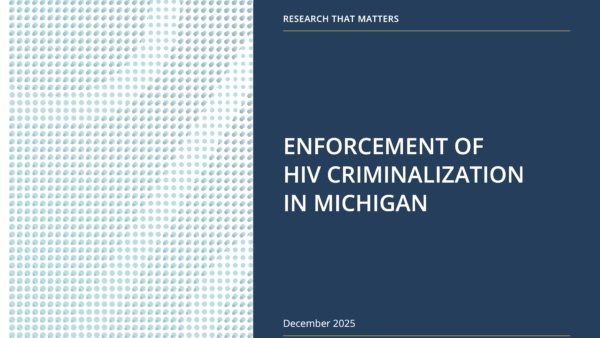
BC Congress eliminates crime of “danger of contagion”
Translated with Google Translate. Scroll down for article in Spanish.
Mexicali, Baja California.- The XXV Legislature of the Congress of Baja California approved the repeal of article 160 of the state Criminal Code, which considered the “danger of contagion” of communicable diseases a crime. The measure seeks to eliminate the criminalization of people with sexually transmitted infections (STIs), including HIV/AIDS, and reduce the stigma that hinders their access to prevention, diagnosis and treatment services.
The opinion, presented by the Diversity Committee and supported by deputies Liliana Michel Sánchez Allende and Jaime Eduardo Cantón Rocha, maintains that the criminal figure was ambiguous and contrary to the principle of minimal criminal intervention, in addition to being redundant compared to other legal provisions that protect health.
The legal analysis of the Congress pointed out that the repeal is in line with articles 1 and 40 of the Federal Constitution, with jurisprudence of the Supreme Court of Justice of the Nation and with international standards, including the guidelines of UNAIDS and the American Convention on Human Rights.
Deputy Cantón Rocha explained that the elimination of article 160 represents an act of progressiveness in the protection of human rights and a step to ensure that no person is criminally sanctioned for carrying a disease. “No one deserves to go to jail for having a disease,” he said.
The repeal of article 160 places Baja California in the line of other entities such as Mexico City, Nuevo León and Nayarit, which have already eliminated similar provisions and promote a preventive and non-punitive approach to public health.
Congreso BC elimina delito de “peligro de contagio”
Mexicali, Baja California.- La XXV Legislatura del Congreso de Baja California aprobó la derogación del artículo 160 del Código Penal estatal, que consideraba delito el “peligro de contagio” de enfermedades transmisibles. La medida busca eliminar la criminalización de personas con infeccionesde transmisión sexual (ITS), incluyendo VIH/SIDA, y reducir el estigma que obstaculiza su acceso a servicios de prevención, diagnóstico y tratamiento.
El dictamen, presentado por la Comisión de la Diversidad y respaldado por las diputadas Liliana Michel Sánchez Allende y Jaime Eduardo Cantón Rocha, sostiene que la figura penal era ambigua y contraria al principio de mínima intervención penal, además de redundante frente a otras disposiciones legales que protegen la salud.
El análisis jurídico del Congreso señaló que la derogación se alinea con los artículos 1 y 40 de la Constitución federal, con jurisprudencia de la Suprema Corte de Justicia de la Nación y con estándares internacionales, incluidos los lineamientos de ONUSIDA y la Convención Americana sobre Derechos Humanos.
El diputado Cantón Rocha explicó que la eliminación del artículo 160 representa un acto de progresividad en la protección de los derechos humanosy un paso para garantizar que ninguna persona sea sancionada penalmente por portar una enfermedad. “Nadie se merece ir a la cárcel por tener una enfermedad”, afirmó.
La derogación del artículo 160 coloca a Baja California en la línea de otras entidades como Ciudad de México, Nuevo León y Nayarit, que ya han eliminado disposiciones similares y promueve un enfoque preventivo y no punitivo en salud pública.








